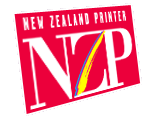
Announcing the package of changes this week, awards manager Sue Archibald said that, entry information for the 2008 awards will be amended to make identification of categories and preparation for entry submission easier.
"The main change is in Category 10 which has been expanded to include calendars, annual reports and other specific products and processes such as foiling, embossing, thermography, binding and finishing, personalisation, metal printing, pre-formed plastic, limited editions, print /agency pitch campaigns, security printing, composites and case-bound books.
"These were scattered around different categories which were more suited to production processes. Now they will be grouped into Category 10 regardless of the processes used to produce them.
"Entries in this category will still be judged by expert judges nominated to cover the relevant production processes, but by having them in one area it will make it easier for the judges to focus on them as a category in their own right.
"It will also be easier for printers to know in advance which category their entry is destined for, and to target the specific requirements of that category in producing the support documentation for their entry."
Ms Archibald said that two other initiatives were also being introduced to increase the "printer friendly" experience of entering the Pride In Print Awards.
One is an information pack explaining in detail the Awards, the categories, the judging process and the overall Pride In Print concept. The pack is now downloadable from the www.prideinprintawards.co.nz website, or for those who prefer a printed hard copy version, from the Pride In Print Awards offices.
The second initiative is a series of regional seminars at which local printers meet the Pride In Print team first hand, get some inside knowledge on how the Awards work and can ask direct questions to increase their understanding of the whole concept.
Ms Archibald said that these initiatives were part of a drive to increase the transparency of the Awards to ordinary printers whether they were large or small companies.
"In the last few years more and more printers have valued getting back the judging sheets which gave them a true reflection of the good and bad points judges found in their work," she said.
"Having those specific comments available as well as the information pack will allow printers to focus more clearly on next year's entries. They can keep the judging sheets with their information pack for example, and carefully review possible entries against what the judges have said in the past.
"This is the kind of thing we will be getting across to printers at our seminars. We welcome discussion and questions – Pride In Print is about improving standards across the board."
One seminar has already been held in Wellington, others will be held in Waikato this week and one in Auckland is planned for November. Others are still to be announced.






